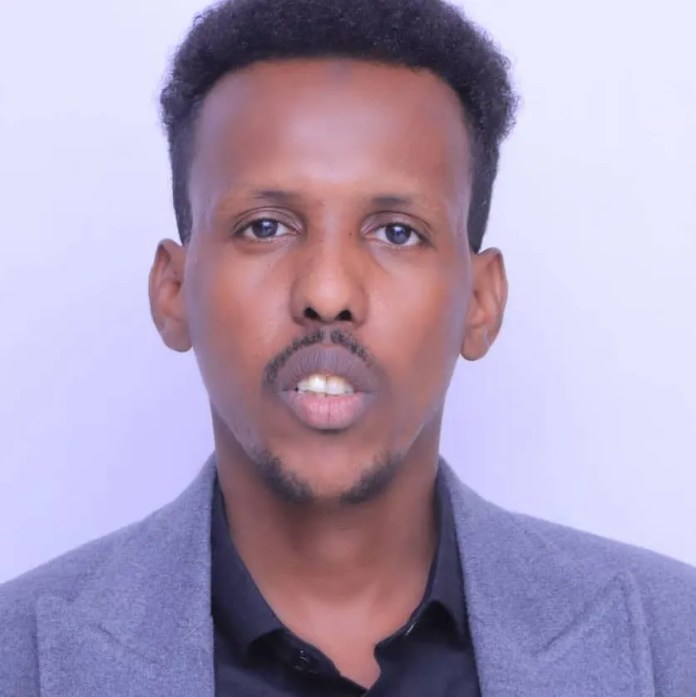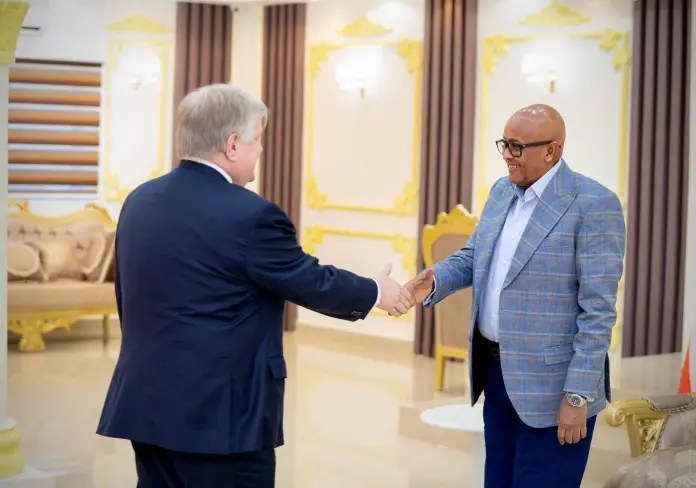UPDATED: Aug 14, 2025 21:34 IST
In the Horn of Africa, a diplomatic gamble is taking shape that could redraw strategic lines in one of the world’s most contested maritime zones. Somaliland, a self-declared republic unrecognised by any UN member state, is offering the United States something it can ill afford to ignore: access to a coveted stretch of Red Sea coastline and rights to valuable mineral deposits, including lithium, in exchange for what it has been seeking for over three decades — formal recognition.
For the 5.7 million people who live here, independence is not a theoretical aspiration but a political reality since 1991. Yet on most maps, Somaliland still appears as part of Somalia. Now, under President Abdirahman Mohamed Abdullahi, the territory is proposing an audacious deal to Washington, one that could recast its role in global geopolitics.
A coastline of consequence
The offer is deceptively straightforward: the US gains a prime military foothold near the Bab el-Mandeb Strait, while Somaliland secures recognition. This narrow maritime chokepoint links the Red Sea to the Gulf of Aden, through which roughly a third of global seaborne trade passes.
Recent Houthi rebel attacks on shipping have disrupted trade and inflated insurance costs. For Washington, the prospect of securing a monitoring base in Somaliland, out of reach of adversarial influence and within striking distance of a major shipping artery, is a tempting strategic proposition.
Lithium and leverage
Beyond military positioning, Somaliland is dangling another prize: untapped mineral wealth. Geological surveys suggest deposits of lithium, a key component in batteries for electric vehicles and renewable energy storage, alongside tin, gold, gemstones and industrial minerals.
The potential economic outcomes are starkly different. An extract-and-export model would bring royalties and jobs but risk locking Somaliland into a familiar trap: resource dependency without long-term industrial growth. By contrast, developing local refining and manufacturing could transform the economy, expand employment, and embed the country into global supply chains.
This is where geopolitics sharpens the offer. By securing lithium access with guarantees on responsible mining and supply stability, Somaliland could become a key link in Western efforts to reduce dependence on strategic minerals from China.
From protectorate to pariah
Somaliland’s current path was shaped by a turbulent history. Once the British Protectorate of Somaliland, it gained independence on 26 June 1960 before voluntarily uniting with Italian Somaliland to form Somalia. Discontent grew under centralised rule from Mogadishu, culminating in brutal campaigns against the Isaaq clan during Siad Barre’s dictatorship — violence that many consider genocide.
When Barre fell in 1991, Somaliland broke away, choosing stability over Somalia’s subsequent decades of turmoil. It built governance structures from the ground up, approved a new constitution in 2001, and has since held multiple peaceful elections, including a 2024 vote that saw Abdullahi’s Waddani party take power, one of the few non-violent opposition victories in Africa that year.
advertisement
Yet democracy has not brought prosperity. The economy, worth around $7 billion in 2022, depends heavily on remittances. International loans and aid from bodies like the World Bank remain inaccessible due to its unrecognised status.
Foreign investment and failed deals
Despite these hurdles, Somaliland has attracted strategic investment. In 2016, DP World took over management of the Port of Berbera, later partnering with Ethiopia. A more recent 2024 deal to grant Ethiopia a 50-year lease on part of Somaliland’s coastline in exchange for recognition collapsed after Mogadishu and Addis Ababa mended ties under Turkish mediation.
That diplomatic setback has likely influenced Hargeisa’s decision to turn to Washington. The US already maintains a heavy military presence in Djibouti, but the crowded, costly port city is also home to China’s first overseas base which is a constant reminder of great power rivalry. Somaliland’s location offers an alternative, free from Beijing’s direct reach.
The recognition roadblock
Reports indicate that US-Somaliland talks over partial recognition and base access have been ongoing since March 2025. But formal recognition faces major obstacles. Washington, like the African Union, officially supports a “One Somalia” policy, wary of encouraging separatist movements across the continent.
Somalia’s federal government strongly opposes Somaliland’s independence, and from a counter-terrorism standpoint, the US is reluctant to weaken Mogadishu’s authority in the fight against Al-Shabaab. In recent African history, only Eritrea and South Sudan have achieved widely accepted statehood after secession.
Given these constraints, President Abdullahi has floated a phased approach: deepen military and economic ties first, and push for formal diplomatic recognition later.
Caught between powers
The timing of Somaliland’s overture is no accident. The Horn of Africa has become a focal point for global competition. The UAE is entrenched at Berbera, China is in Djibouti, and US-China tensions are playing out in the shipping lanes of the Red Sea. For Washington, aligning with a relatively democratic, pro-Western Somaliland could strengthen supply chains, bolster maritime security, and counter Chinese influence, all without the political baggage of Djibouti.
The stakes for Somaliland
For Hargeisa, the stakes could not be higher. A US security partnership and resource deal could transform its economic and diplomatic fortunes. But failure could mean continued limbo: stable, functional, but invisible on the world stage.
After thirty-four years of surviving without recognition, Somaliland is making its boldest move yet. In an era defined by strategic competition, it is betting that the right deal, at the right moment, might finally turn survival into sovereignty.
– Ends
Like this:
Like Loading...


















